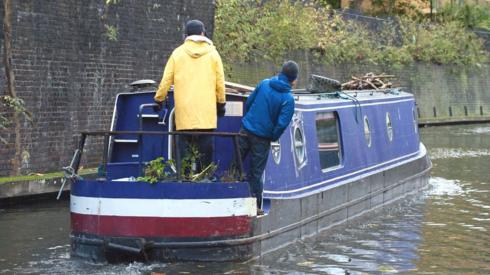Firms that use large amounts of water are being turned away from part of the driest area of the UK.
Read moreBy Ben Schofield and Naomi Richardson
BBC News, East of England

Narrowboat owners are under pressure to find greener ways to run their craft.

Narrowboat owners are under pressure to find greener ways to run their craft.

Hundreds of key environmental science terms added to the British Sign Language dictionary.

How do you sign 'carbon footprint' in BSL?

A summit in Brazil sees the countries that share the Amazon basin agree only to a new alliance on the issue.

The oceans are a vital regulator for the climate and our weather but are rapidly heating up.

Fifty MPs and peers from all major parties write to the energy secretary to demand a rethink.

Narrowboat owners are under pressure to find greener ways to run their craft.

Hundreds of key environmental science terms added to the British Sign Language dictionary.

How do you sign 'carbon footprint' in BSL?

A summit in Brazil sees the countries that share the Amazon basin agree only to a new alliance on the issue.

The oceans are a vital regulator for the climate and our weather but are rapidly heating up.

Fifty MPs and peers from all major parties write to the energy secretary to demand a rethink.

Hundreds of key environmental science terms added to the British Sign Language dictionary.

How do you sign 'carbon footprint' in BSL?

A summit in Brazil sees the countries that share the Amazon basin agree only to a new alliance on the issue.
By Ben Schofield and Naomi Richardson
BBC News, East of England
Journalist Raissa Ioussouf meets the people worst affected by Madagascar's famine
Wedaeli Chibelushi
BBC News

An upcoming African climate change summit to be hosted by Kenyan President William Ruto has not been “hijacked by foreign interests”, his office has told the BBC.
The African Climate Summit, which will take place in the Kenyan capital, Nairobi, from 4-6 September features speakers from Kenya’s government, the African Union and United Nations.
The French government, the Bill & Melinda Gates Foundation and the African Development Bank are among the summit’s partners.
Signed by more than 300 “gravely concerned” African organisations, a recent open letter to Mr Ruto says the summit has been “seized” by Western governments and organisations “hellbent on pushing a pro-West agenda and interests at the expense of Africa”.
Signatories include ActionAid Ghana, the African Union’s Youth Wing and South Sudan’s University of Juba.
In response, Mr Ruto’s special adviser for climate change, Ali Mohamed, told the BBC the summit was an “African endorsed event hosted by an African bank that is going to discuss the challenge to the global community”.
“The population of ordinary African people will truly be represented through the leadership and the experts who are attending the summit,” he said, adding that 13,000 people had registered for the event.
The open letter specifically takes aim at the summit’s agenda, saying it prioritises Western interests, such as carbon markets.
In the past, carbon market schemes have enabled rich countries to compensate for their emissions by financing climate projects in developing countries.
These schemes have been heavily criticised - opponents say they fail to reduce global emissions and have been linked to environmental and human rights violations in poorer countries. A new set of rules on carbon markets was agreed at COP26, but they remain to be finalised.
The letter also singles out the role of leading US consultancy McKinsey. The signatories allege the firm has “unduly influenced” the summit.
McKinsey was listed as a partner on the African Climate Summit website, but was removed from the index after the letter was published.
McKinsey did not comment on the allegations contained in the letter when approached by BBC News, but pointed to remarks made on Wednesday by Kenya’s environment minister, Soipan Tuya.
She said that because of the global nature of the summit "we have different partners".
"We have civil society organisations, we have consultancy firms that have come and listened to what we are saying and they have input and they have questions, but I can confirm that this is the African position that we are projecting,” she added.
By James Gregory
BBC News
By Louise Cullen
BBC NI agriculture and environment correspondent
By Galya Dimitrova
BBC News
By Louise Parry and Justin Dealey
BBC News, Buckinghamshire
By Samantha Granville in Montana & Chloe Kim in New York
BBC News
By Priti Gupta
Mumbai
By Graeme Baker
BBC News
By Craig Duggan & Paul Pigott
BBC Wales News
By Mark Poynting
Climate and environment researcher, BBC Verify
By Andy Trigg
BBC News, Norfolk
By Brendon Williams
BBC News
By Natalie Sherman & Brandon Drenon
BBC News